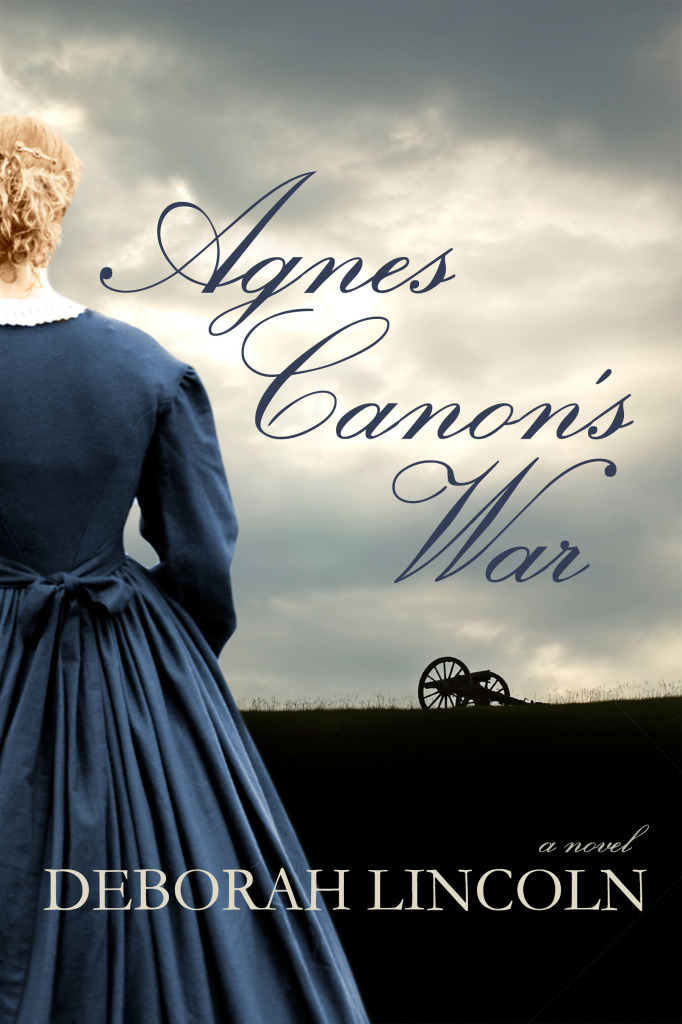
Publication Date: October 1, 2014
Blank Slate Press
Formats: eBook, Trade Paperback
Pages: 300
Genre: Historical Fiction
“I saw a woman hanged on my way to the Pittsburgh docks..” Agnes Canon is tired of being a spectator in life, an invisible daughter among seven sisters, meat for the marriage market. The rivers of her Pennsylvania countryside flow west, and she yearns to flow with them, explore new lands, know the independence that is the usual sphere of men. This is a story of a woman’s search for freedom, both social and intellectual, and her quest to understand what freedom means. She learns that freedom can be the scent and sound of unsettled prairies, the glimpse of a cougar, the call of a hawk. The struggle for freedom can test the chains of power, poverty, gender, or the legalized horror of slavery. And to her surprise, she discovers it can be found within a marriage, a relationship between a man and a woman who are equals in everything that matters. It’s also the story of Jabez Robinson, a man who has traveled across the continent and seen the beauty of the country and the ghastliness of war, as he watches his nation barrel toward disaster. Faced with deep-seated social institutions and hard-headed intransigence, he finds himself helpless to intervene. Jabez’s story is an indictment of war in any century or country, and an admission that common sense and reasoned negotiation continue to fail us. As Agnes and Jabez struggle to keep their community and their lives from crumbling about them, they must face the stark reality that whether it’s the freedom of an African from servitude, of the South from the North, or of a woman from the demands of social convention, the cost is measured in chaos and blood. This eloquent work of historical fiction chronicles the building of a marriage against the background of a civilization growing – and dying – in the prelude to civil war.
Praise for Agnes Canon's War
"Impressively researched, it captures the brutality of the war in the West and the complicated, divided loyalties of the people who are caught up in it. Agnes Canon’s War will have readers anticipating the romance and dreading the battles in equal amounts." -Steve Wiegenstein, author of Slant of Light and This Old World"The characters are likeable, intelligent, humorous, spunky and passionate people whose zest for adventure is met and then some! Superb historical fiction this reviewer highly recommends." - Historical Novel Society
"Agnes Canon’s War is brilliantly researched and written. Deborah Lincoln has successfully described the occurrences of the Civil War era in the border state of Missouri and the resultant emotions upon the inhabitants of the area. Many neighbors were bitterly opposed to one another, and severe heartache touched everyone. Lincoln’s writing places the reader in the midst of that turmoil. Her research is accurate and lends to a skillfully-designed background for Agnes Canon’s story. An example is her reference to Westport Landing. It is a little-known fact (even to most Missourians) that this original port on the Missouri River, located in the vicinity of today’s Grand and Main Streets, resulted in present-day Kansas City. This heartfelt book will likely impress even the most seasoned historians." -William R. Reynolds, Jr. author of Andrew Pickens: South Carolina Patriot in the Revolutionary War and The Cherokee Struggle to Maintain Identity in the 17th and 18th Centuries
"Years ago in fiction workshop, this manuscript leaped out at me with the most memorable opening line I’d seen in forever: “I saw a woman hanged on my way to the Pittsburgh docks.” On revisiting this story several years after my first beta-read of the whole novel, I was struck by how many details and scenes I remember. Historical fiction is not for the lazy writer. The tremendous amount of research that skilled writers weave into the narrative are simply amazing. I’m afraid I’ll be guilty of plot spoilers if I mention some of my favorite scenes or the tragic events that really happened. I will say Jabez has a first wife, and Agnes befriends her to her dying day. That first wife has a fascination for what today would sound like New Age mysticism. Any reader who hates reading about war should keep going, because all sorts of intriguing historical issues and beliefs come to light in Agnes Canon’s world. The prose is polished, the story spellbinding, the authenticity both inspiring and heartbreaking. Five stars!" -Carol Kean Blog, Book Reviews, Cosmic Rants
Interview
CW: Tell us a bit about yourself. How did you get into writing?
CW: Tell us a bit about yourself. How did you get into writing?
DL: Like most writers, I can’t
remember a time when I didn’t want to be a writer. I remember earning the
Writing Badge as a Girl Scout (I was maybe ten?) by writing and illustrating a
book about elves (and binding it in blue cloth). And a short story about – surprise
– a Civil War incident based on my family’s visit to Gettysburg. I still have
both those astonishing pieces of literature. Somewhere.
I lived in Ohio, in a little farm
town in the western part of the state – the REALLY flat part – and grew up on Nancy
Drew. I hoped my dad, who was an engineer, would retire and become a lawyer so
I would have cases to solve, which I would then write about. But we were a very
ordinary, very vanilla-pudding middle-class family who loved each other and
never did anything that could be translated into a plot, so I turned to history
to find my stories.
CW: What kind of research did you conduct for this novel?
DL: First of all, lots. And lots and
lots. I started it in the early nineties, before the Internet, with only a
small city library available (I was living in Oregon by then – am still living
in Oregon, on the coast, and the local library is even smaller). So the book
languished until the web made all sorts of information available. Did you know
you can learn in graphic detail how to amputate a man’s leg (without
anesthetic) just by googling “Civil War Medicine”? Of course you did; everyone knows you can
find anything on the Internet. And some of it is even accurate.
I also travelled to the locations.
The town of Oregon, Missouri (the Lick Creek of the novel) appears to be little
changed from the time when Jabez and Agnes Robinson lived there. There’s a big
new high school, and the courthouse is now a little one-story affair, but other
than that the houses along the square and the brick stores appear to be at
least a hundred and fifty years old. The cemetery is full of kernels of stories
to feed a writer’s imagination.
We (my patient husband and I) also
spent time driving up the Missouri River (wish we could have steamboated up)
from St. Joseph to Ft. Benton in northern Montana, the route that Agnes takes
in the book. Then we drove down to Virginia City (in a March snowstorm) and
visited Boot Hill there (read the book to find out why that’s important). We
also explored the Gallatin Valley looking for the site of the Montana homestead.
Came close, but there’s nothing there to identify it. Decided we really like Bozeman.
And my mother and I visited
Uniontown, Pennsylvania, which also figures in the book. And I hope will be the
setting of the sequel. (Watch for it!)
CW: Do you have a favorite character
in the novel?
DL: Agnes, of course, has a big
claim on me, mostly because I want to be like her. And I see a lot of my mother
in her. (We are, after all, her spawn, or the sand in her hourglass, to use the
somewhat inapt analogy I used in the book.) But of the other characters, I’m
partial to Rose McDonald – there’s a beautiful tale somewhere there, but I’m
not sure I’m the one to write it – and I loved little James and his black
arrowhead.
CW: Who are your favorite authors
(or books)?
DL: At the risk of being a cliché right now, I really enjoy
Diana Gabaldon. I envy her productivity and what appears (on Facebook, at
least) to be her unbounded joy in her work. I discovered M.M. Kaye’s historical
novels years ago; there are two that are my particular favorites, one set in
India during the sepoy mutiny and one in Zanzibar. I love Ivan Doig’s earlier
works, and I’m re-acquainting myself with Paulette Jiles (Enemy Women). I also like a good cop story, particularly John
Sandford’s Davenport and Flowers books (his dialog and character development
are masterly). I could go on and on (Russell Banks’s Cloudsplitter, Geraldine Brooks, Martha Grimes). But I won’t. I
will say, though, that I’m a book hoarder: I have a degree in Library Science,
but never use the library. I want to own my books, have them at hand, pick them
up and leaf through them whenever the mood strikes.
CW: Bonus Question: If you could
time travel, what era would you go to?
DL: Start with maybe 1790, when the Enlightenment had provided all sorts of
interesting thoughts to think and intelligent books to read, but being a
romantic was okay, too.
Thanks Deborah for joining us here today. For more information on Agnes Canon's War or to purchase a copy, follow the links below.
Buy the Book
Amazon Barnes & Noble Powell'sAbout the Author
Agnes Canon's War Blog Tour Schedule
Monday, December 8 Review at Forever Ashley Review at Back Porchervations Tuesday, December 9 Interview at Caroline Wilson Writes Wednesday, December 10 Review at Too Fond Friday, December 12 Review at Just One More Chapter Guest Post at Mina's Bookshelf Monday, December 15 Review at Luxury Reading Wednesday, December 17 Review at Book Babe Guest Post at Let Them Read Books Thursday, December 18 Review at Griperang's Bookmarks Friday, December 19 Review at Boom Baby Reviews Interview at Layered Pages

No comments:
Post a Comment